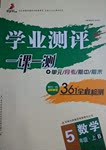题目内容
There were no women in the committee ________ 1976, but now women are in a majority.
[ ]
A.prior
B.previous to
C.before to
D.ago
答案:
解析:
解析:
|
题意为:“ 1976年前,该委员会没有女士,但现在女士已占大多数”。故选B项。 |

练习册系列答案
 学业测评一课一测系列答案
学业测评一课一测系列答案
相关题目
